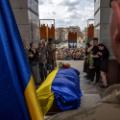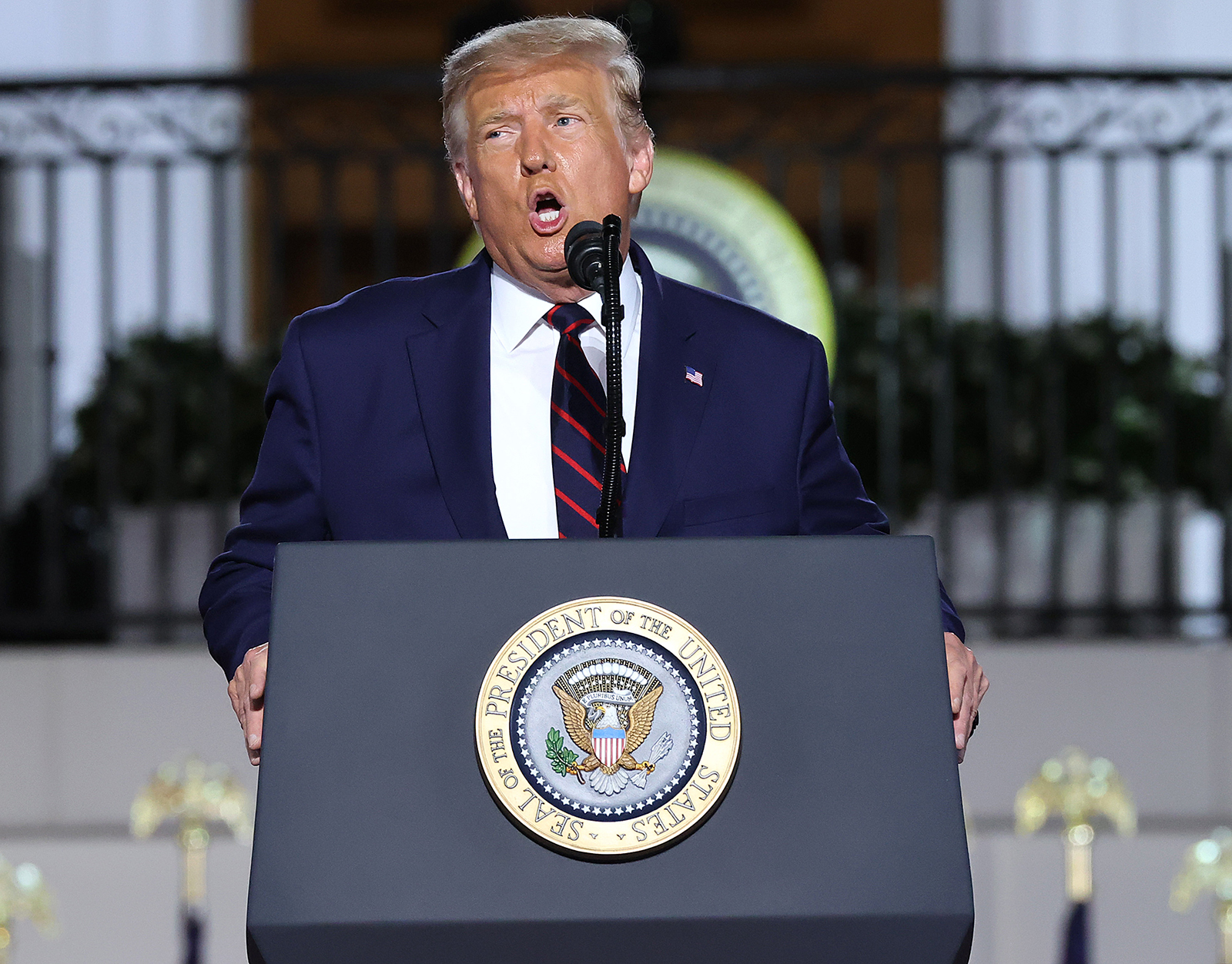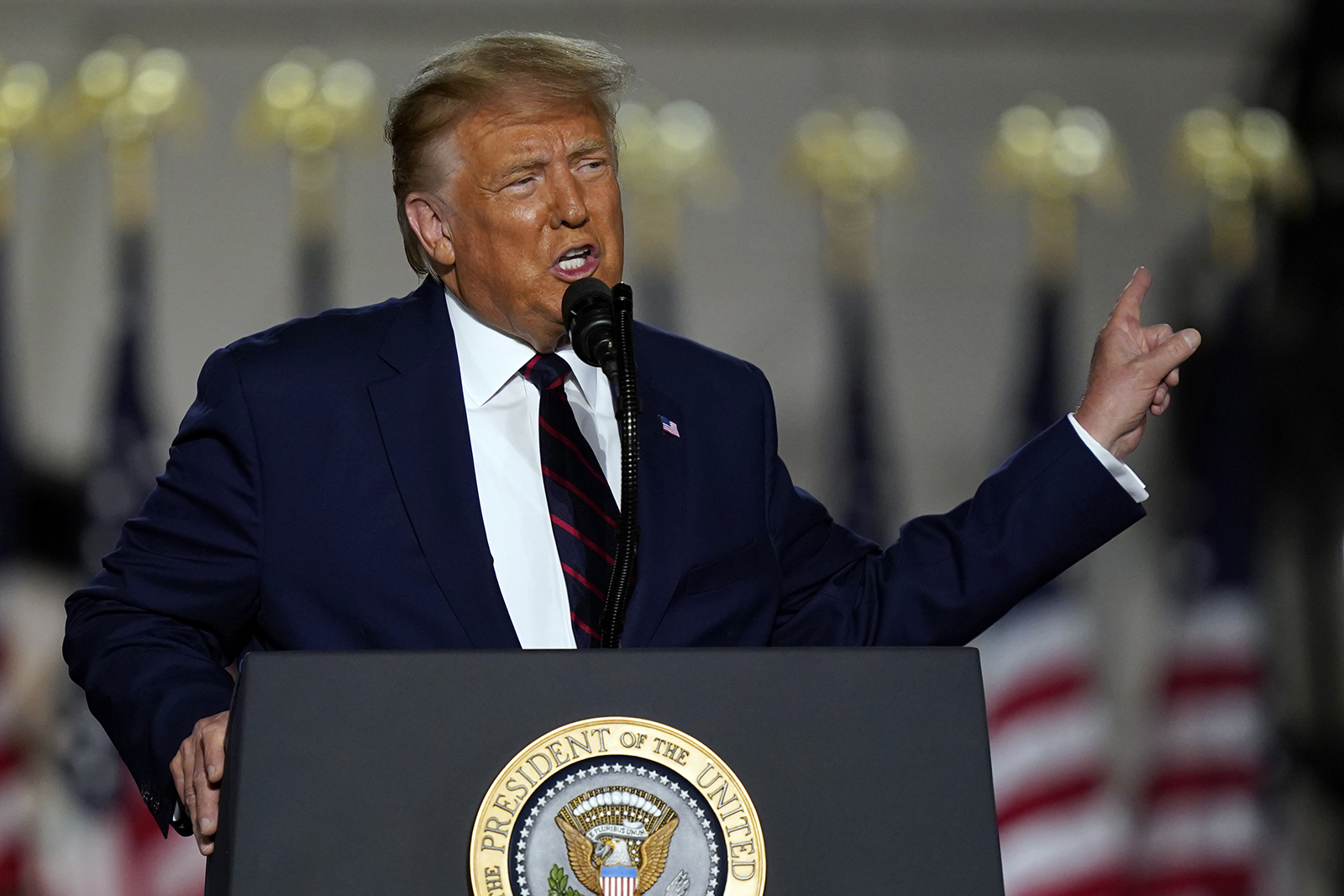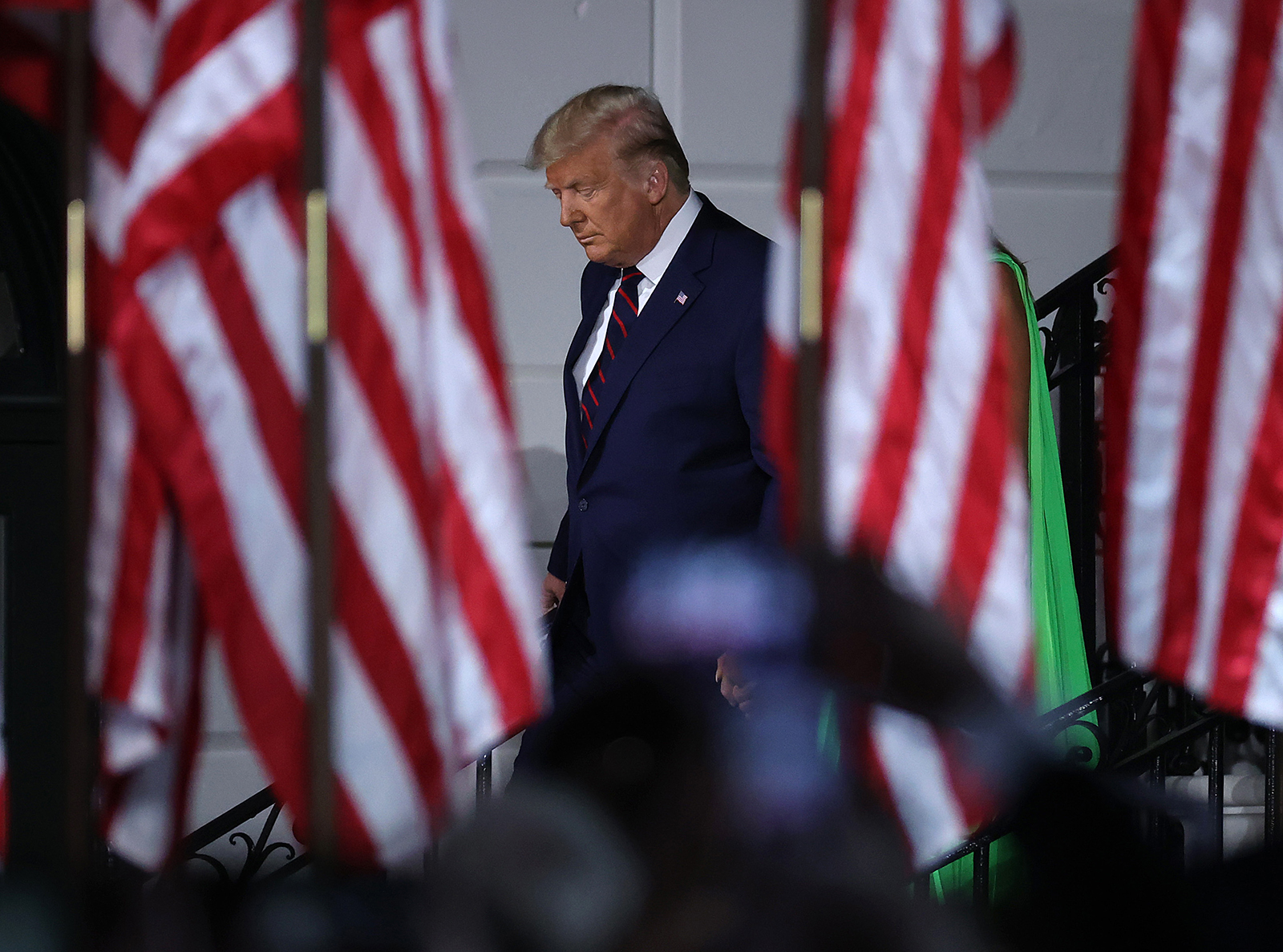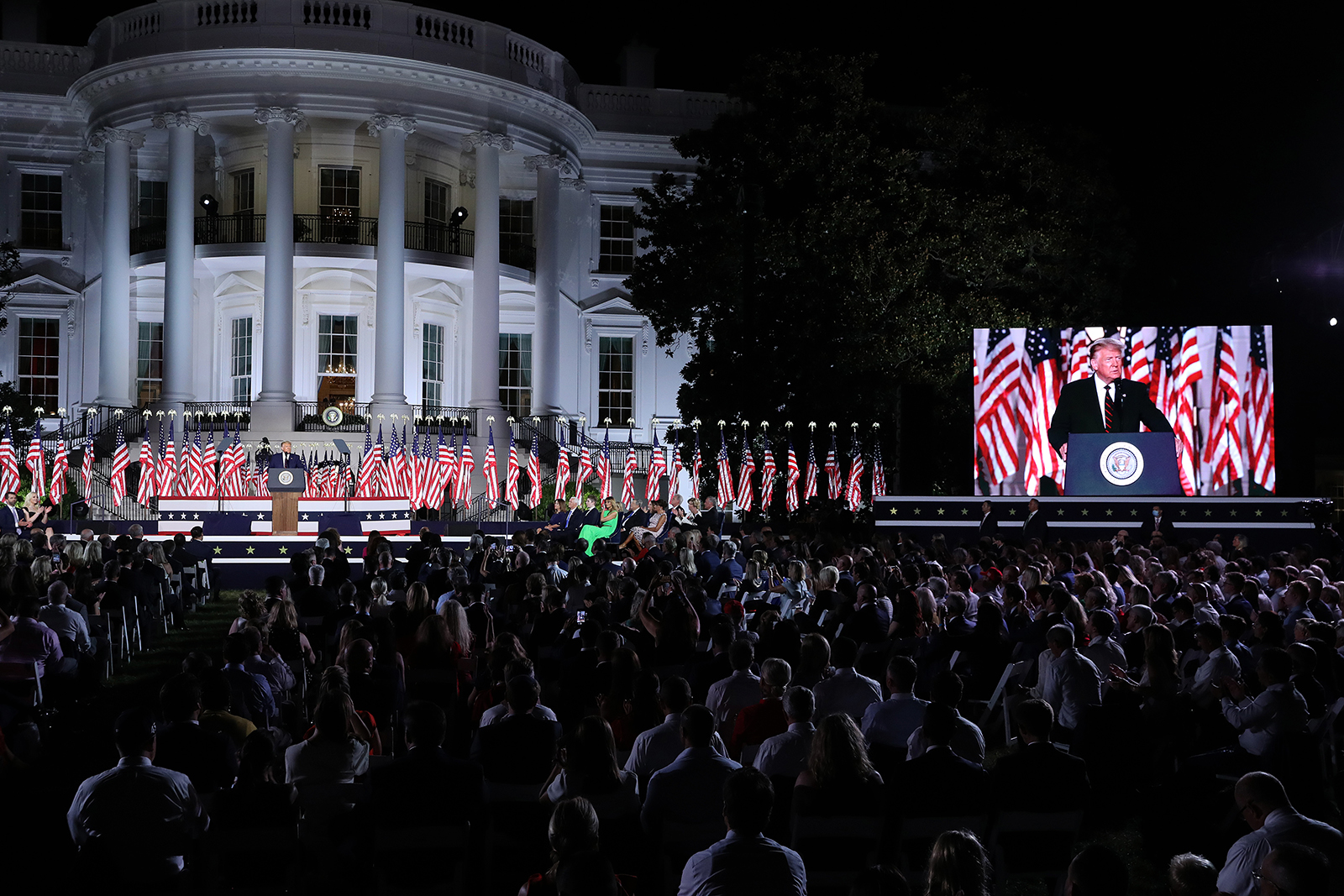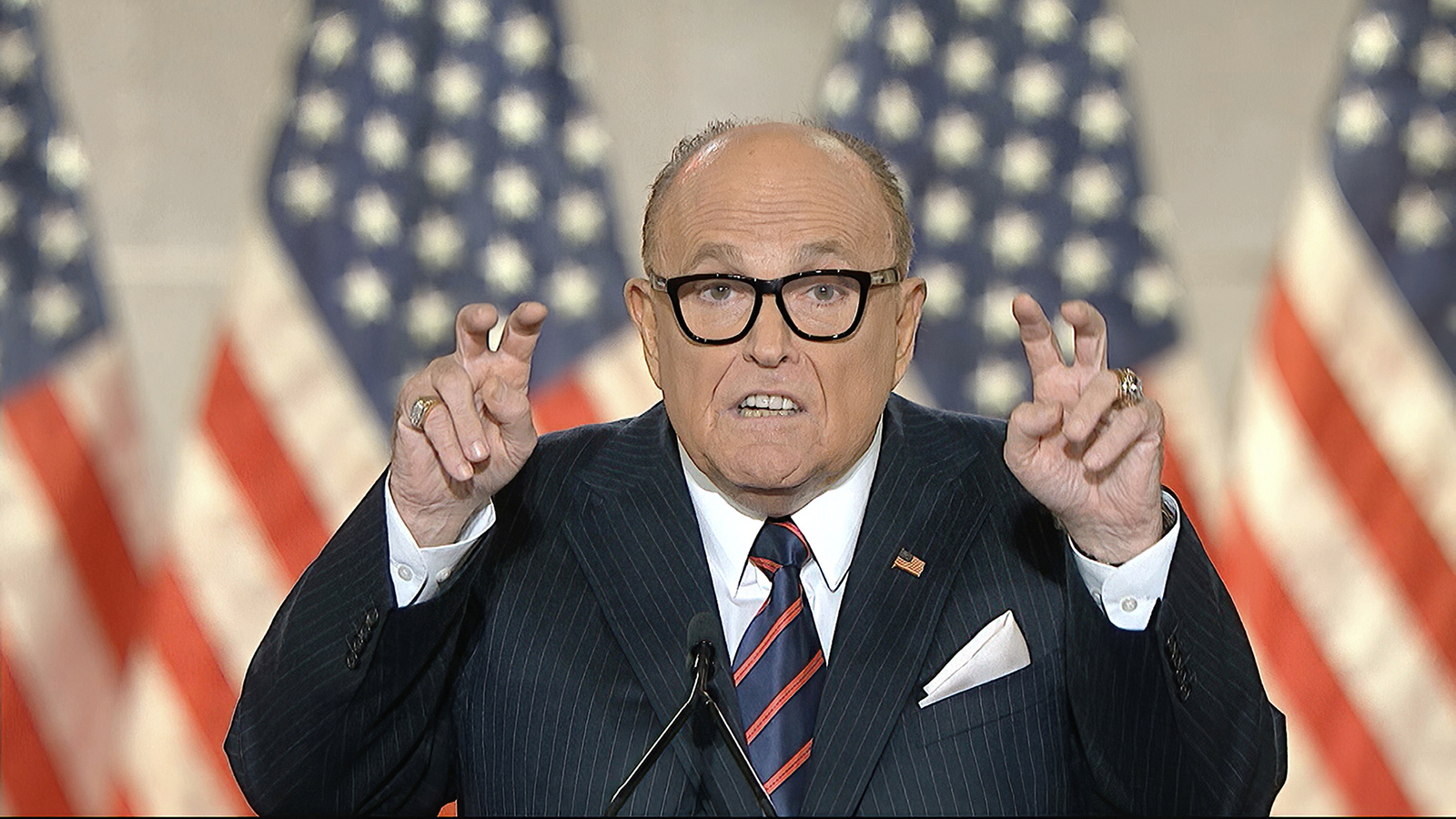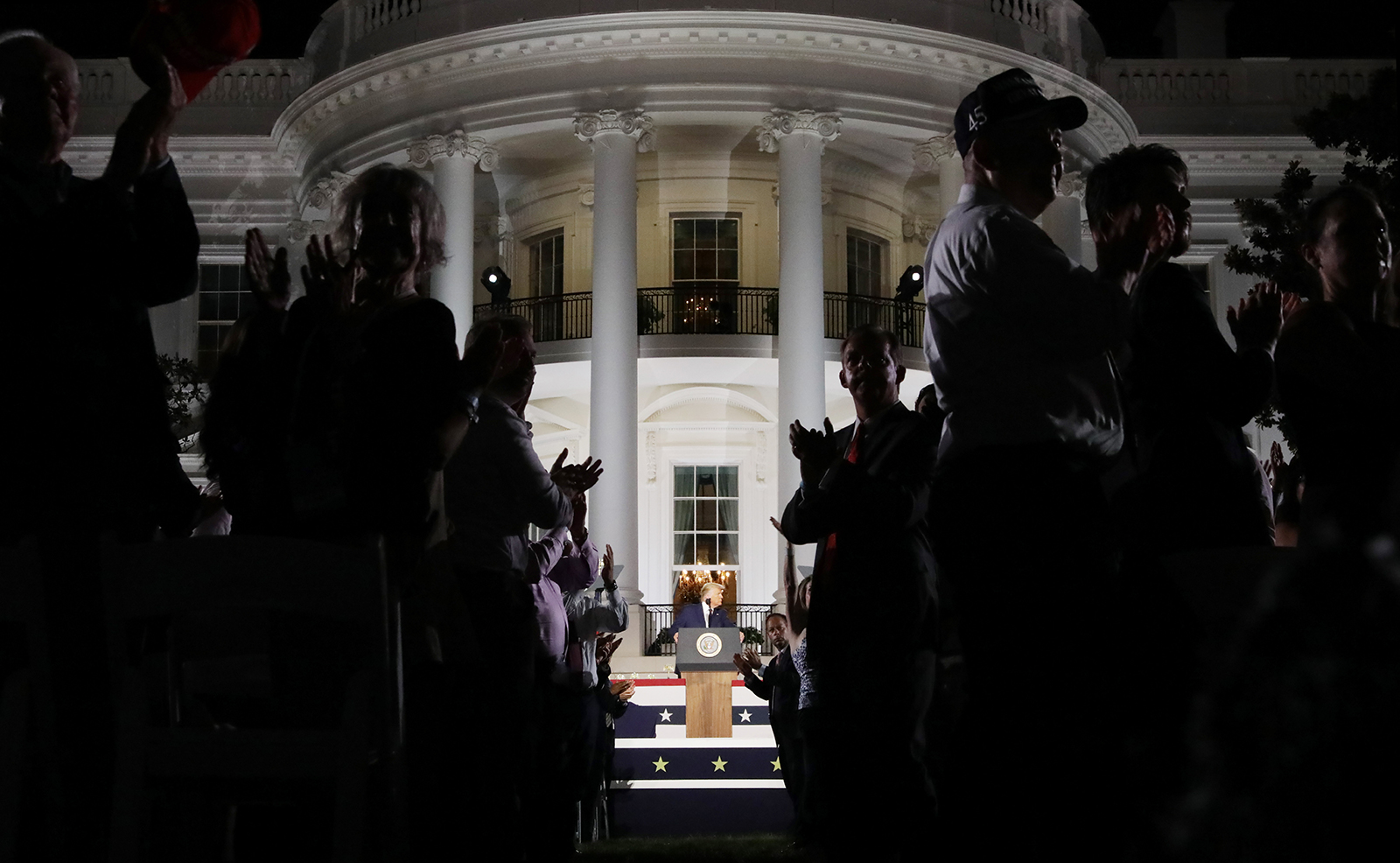
President Donald Trump — speaking to a crowd of more than 1,000 supporters on the White House South Lawn that wasn’t socially distancing and many were not wearing masks — said Thursday night that unlike Joe Biden, his administration focuses “on the science, the facts and the data” to handle the coronavirus pandemic.
“If we had listened to Joe, hundreds of thousands more Americans would have died. … The cost of the Biden shutdown would be measured in increased drug overdoses, depression, alcohol addiction, suicides, heart attacks, economic devastation, job loss and much more. Joe Biden's plan is not a solution to the virus, but rather it’s a surrender to the virus,” Trump said during his Republican convention speech Thursday night.
“My administration has a very different approach. To save as many lives as possible, we are focusing on the science, the facts and the data. We are aggressively sheltering those at highest risk – especially the elderly – while allowing lower-risk Americans to safely return to work and to school," he continued.
The President delivered his speech to a group of more than 1,000 people on the South Lawn of the White House. Many did not wear face masks and were seated close together.
According to White House chief of staff Mark Meadows, “some” of the people in the audience were expected to be tested for coronavirus, but some attendees, like Sen. Lindsey Graham, told CNN they were not.
CNN reported earlier Thursday that the White House coronavirus task force was not consulted about convention plans for Trump's speech on the South Lawn, according to a senior administration official. Health experts on the task force, like National Institute of Allergy and Infectious Diseases Director Anthony Fauci, have been advising Americans to avoid large crowds during the pandemic.
And as CNN previously reported, in a shift that perplexed doctors, a former CDC director and a growing number of public health organizations, the CDC has changed its Covid-19 testing guidelines to say some people without symptoms may not need to be tested, even if they've been in close contact with someone known to have the virus.
A senior federal health official close to the process told CNN the sudden change in CDC Covid-19 testing guidance was the result of pressure from the Trump administration.
Watch:
